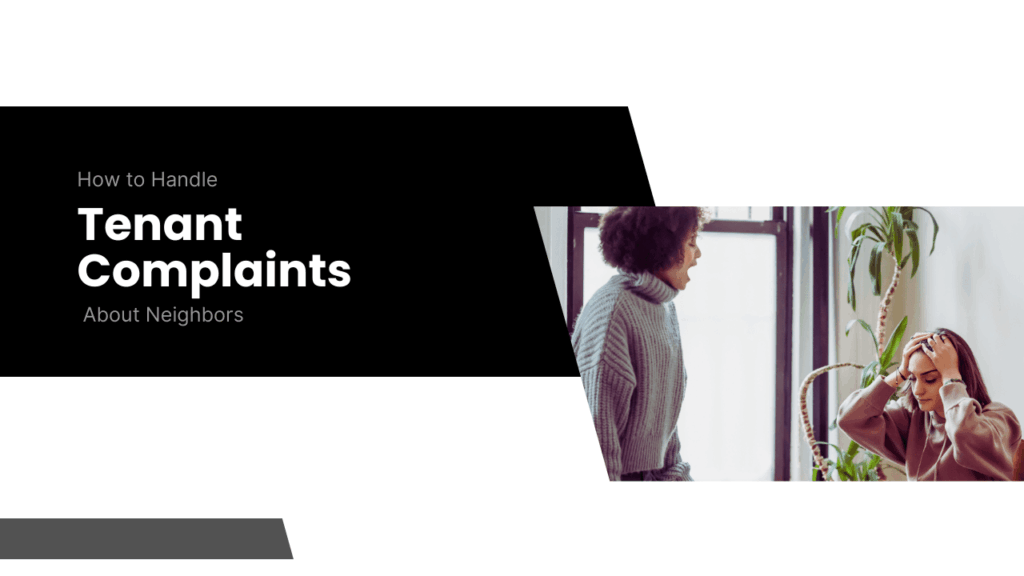
Good fences make good neighbors, or so said Robert Frost in his poem “Mending Wall.”
Neighbors can be a gift or a challenge, depending on who they are and where you live. If you’re renting out a property in Santa Rosa, you might get some complaints from tenants from time to time about their neighbors. Maybe televisions are too loud, dogs are barking all night long, or children are refusing to get off of lawns.
Getting involved in disputes between neighbors is not a lot of fun. But, you’re trying to provide an exceptional rental experience for your tenants, one they’ll want to extend by signing a lease renewal at the end of the lease term. So, you might find yourself having to navigate tenant complaints about neighbors.
What can you do?
We’ve been professional property managers in Santa Rosa for years, and we’ve mediated more than one dispute between tenants and their next door neighbors. Here’s what we can tell you about handling these complaints.
Listen and Validate the Complaint
Tenants want to be heard.
And so the first and most important step in addressing any tenant complaint is to listen carefully. When a tenant approaches you with a concern about their neighbor, give them the space to express their issues fully. This may seem like a simple step, but it’s an important one.
First, acknowledge the issue. Let the tenant know you take their concerns seriously. Phrases like “I understand how frustrating this must be for you” or “Thank you for bringing this to my attention” can go a long way in establishing trust. Repeating back what you hear can show them that you’re doing more than nodding along…you’re really listening.
It’s also a good idea to ask questions that will help you gather specific information. What exactly is the neighbor doing that’s causing distress? How often does the issue occur? Is the problem related to noise, cleanliness, behavior, or something else? Complaints can sometimes stem from misunderstandings or miscommunications. Before jumping to conclusions, gather as much detail as possible.
Assess the Validity of the Complaint
Once you have a clear picture of the situation, it’s important to assess whether the complaint is valid or if it’s based on a misunderstanding. Maybe you have a tenant who simply likes to complain. In Santa Rosa, like many other places, there are specific laws governing noise, nuisance behavior, and property maintenance.
- Noise Complaints
In Santa Rosa, noise complaints are a common issue, especially in dense residential areas. The city has noise ordinances that regulate the level of noise that can be made at different times of the day. For example, the Santa Rosa Municipal Code sets quiet hours from 10:00 p.m. to 7:00 a.m. on weekdays and 10:00 p.m. to 9:00 a.m. on weekends. If the complaint is about noise, check the specific time it occurred and whether it falls within these restricted hours.
- Behavioral Complaints
If the complaint involves disruptive behavior such as aggressive or intimidating actions, this may be considered a violation of your lease agreement, especially if it involves harassment or criminal activity. You should feel empowered to enforce in order to maintain peace and order in the residential rentals you own.
- Cleanliness and Property Maintenance Complaints
If the complaint involves a neighbor’s property being unsightly or in disrepair, this could fall under property maintenance issues. As a landlord, you may be required to uphold certain standards of cleanliness and property upkeep in accordance with city regulations. It’s important to review the lease agreements to see whether there are specific clauses regarding cleanliness, property damage, and upkeep.
Review the Lease Agreement and House Rules
After determining the nature of the complaint, it’s a good idea to review the lease agreements and house rules to ensure that both tenants involved are aware of the expectations for behavior. Your rental properties should have clear guidelines on issues like noise levels, acceptable conduct, and property maintenance.
In Santa Rosa, we always incorporate the following types of clauses in the lease agreements we create:
- Noise Policies. Clearly outlining acceptable noise levels and specifying quiet hours.
- Neighbor Interaction. Setting boundaries for respectful behavior between tenants.
- Maintenance Standards. Outlining the landlord’s and tenant’s responsibilities for property upkeep.
If the complaint concerns a violation of these terms, you’ll have a legal foundation for addressing the issue.
Address the Complaint Directly with the Neighbor
Once you’ve gathered the facts and reviewed the lease, it’s time to consider addressing the complaint with the neighbor. However, it’s important to handle this step discreetly and tactfully to avoid creating unnecessary tension between tenants. It does not have to be a production.
We prefer a non-confrontation approach. If the issue is minor (like noise), you might consider speaking directly with the neighbor in a casual and conversational way. You can say something like, “We’ve received some feedback that there might be some noise at certain times. Would it be possible to keep it down during late hours?”
Sometimes, problems are more complex and require more than a conversation. You may have to bring the tenants together for a meeting to move beyond the misunderstandings and the conflict. If one tenant has clearly violated the lease agreement, a notice requiring that they come into compliance may also be necessary.
Implement Practical Solutions
If you find that the complaint is valid and the neighbor is responsible for disruptive behavior, it’s time to discuss solutions. Some potential remedies include:
- Soundproofing or Noise Mitigation. If noise is an ongoing issue, consider installing soundproofing measures like thicker carpets, wall padding, or curtains that dampen sound. This can be an investment that benefits all tenants in the building.
- Behavioral Adjustment. If the issue is behavior-related, work with the disruptive tenant to explain the concerns and give them an opportunity to adjust their behavior. If they’re uncooperative, you may need to issue a formal warning or even proceed with eviction if the situation worsens.
- Regular Property Inspections. If the complaint involves property maintenance, schedule regular property inspections to ensure tenants are maintaining the premises. This also shows other tenants that you are invested in keeping the property well-managed.
Follow Up with the Tenant and Neighbor
Communication is critical during disputes. Once steps have been taken to resolve the issue, it’s important to follow up with both the tenant who raised the complaint and the neighbor. This ensures that both parties feel their concerns were addressed appropriately.
Check in with the complaining tenant first. A few weeks after resolving the issue, reach out to the tenant who made the complaint to see if the situation has improved. This shows that you care about their living experience and are committed to creating a peaceful environment. You’ll also want to monitor any ongoing friction. For the neighbor in question, keep an eye on their behavior to ensure that any changes they agreed to are being followed. If necessary, remind them of the terms in their lease agreement.
Know When to Get Legal Help
In some cases, tenant complaints may escalate beyond your ability to resolve them as the landlord and property owner. If a neighbor’s actions violate legal standards, such as harassment, discrimination, or criminal behavior, you’ll have no choice but to involve legal professionals.
If you’re unsure about how to handle a situation, it’s always wise to consult with a lawyer who specializes in landlord-tenant law in California. They can guide you through the appropriate legal steps, whether that’s issuing a formal warning, evicting a tenant, or navigating a dispute. Talk to a property manager in Santa Rosa, too. We’re always happy to offer advice and make referrals.
In the worst-case scenario, if a neighbor is repeatedly causing harm or violating the terms of the lease, eviction may be the only solution. However, eviction laws in California are complex, and it’s important to follow the correct legal process to avoid complications.
Prevent Future Complaints by Setting Clear Expectations
Once the issue is resolved, take proactive steps to prevent future complaints by setting clear expectations from the outset. When tenants move in, make sure they understand the house rules and the process for addressing neighbor-related concerns.
Consider the following strategies, which have worked for us:
- Welcome Pack. Provide a welcome pack that includes your policies on noise, behavior, and communication with neighbors.
- Regular Communication. Stay in touch with your tenants through email or newsletters to remind them of important rules and offer guidance on how to resolve disputes amicably.
- Promote a Community Atmosphere. Encourage tenants to get to know their neighbors and foster a sense of community. Sometimes, simple social connections can prevent misunderstandings from escalating into bigger issues.
Handling tenant complaints about neighbors in Santa Rosa requires a mix of communication, problem-solving, and legal awareness. By listening to your tenants, reviewing the lease agreement, addressing issues directly with neighbors, and following up to ensure satisfaction, you can maintain a peaceful and well-managed rental property.
 Anyone uncomfortable with confrontation might struggle with this. We’re here to help. Please contact us at Prestige Real Estate & Property Management. We manage homes in Sonoma County, including Santa Rosa, Windsor, Sebastopol, Petaluma, and Rohnert Park.
Anyone uncomfortable with confrontation might struggle with this. We’re here to help. Please contact us at Prestige Real Estate & Property Management. We manage homes in Sonoma County, including Santa Rosa, Windsor, Sebastopol, Petaluma, and Rohnert Park.
